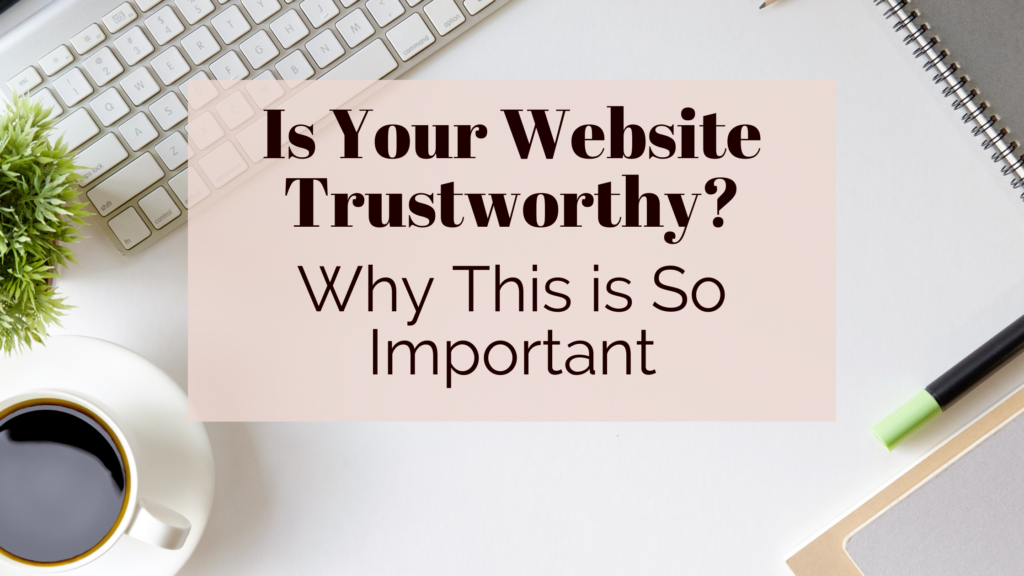Showing the interwebs that you have a trustworthy website is increasingly becoming a more important ranking factor. Meaning it’s becoming an important criteria when determining which sites make it to the top of search results. Let’s make sure you site is legit.
If you examined various websites, you’d see that not every page that does on-page SEO well ranks well on search engines like Google. They may have chosen the right keywords and optimized their content, but they may still be buried deep down in the search results while other sites rank with little mention of keywords.
One of the main reasons is the trustworthiness of one website over the other, but there’s a lot you can do to make sure you get a fair shot to rank. Show the search engines and your readers, for that matter, that you have a website that can be trusted.
Improve Domain Authority
Website authority is also known as domain authority. Every trustworthy website has a domain authority and the closer it is to 100, the better. Google.com is likely very close to 100 but a brand new site may start at zero. The longer you have the site, the more quality content you add, and the more action you take to let the search engines know you have a trustworthy website, the higher it will get.
If you have a new blog you’ll want to spend time producing content to grow. Improving your blog’s domain authority will be necessary to be found online. It is particulary important if you plan to monetize your blog or start a blogging business.

SSL Certificate
An SSL certificate is a digital certification that a website is legit. First, install a SSL certificate on your website, if you have one. You want your website to be accessed through the more secure https protocol, rather than http. Speak to your host provider about getting this installed and what steps you need to take to make sure your entire site is converted over. Most web hosts charge a fee for the certificate, though some of them will offer it as part of their standard package.
Bluehost offers a hosting package for $4.95 per month and this plan includes a free SSL certificate.

Website Load Time
Second, improve your website’s load time and make sure it is mobile accessible and responsive. The load time is how fast it takes your pages to load once someone clicks on your link.
These technical details are becoming more and more important when it comes to ranking well. If you don’t get this right, you’re almost finished before you get started. If you’re using WordPress to run your site, choosing the right theme will go a long way towards helping you accomplish this.
Important Website Pages
Next, be sure to add privacy policy, terms and conditions, contact, and FAQ pages to your website. Not only will the addition of these pages (and making sure you link to them from each page on your site), signal credibility to the search engines, it will also show your visitors and potential customers that you are serious about what you’re doing. Nobody wants to do business with a company that has no contact information or basic information about how it will use their sensitive information.
Social Signals
Social signals are another important part of trustworthiness. We are social beings who look to others for cues on who we can trust and who we should avoid. Set up a social media profile to go along with your site. Build your audience there and share your best pieces of content regularly. As others like, comment, and share, your credibility will start to go up.
Try to resist the urge to set up four social media accounts at once. Reserving your company name is a good idea, but trying to grow on multiple platforms at once can be very difficult.
Last but not least, work on credible content and only try to get links to your site from credible sources. It may be tempting to go on sites like Fiverr to buy traffic and links, but I’d advise against it. It will likely do more harm than good in the long run. Instead, build that reach and those links organically and over time.
Do you have these pieces in place on your site?

